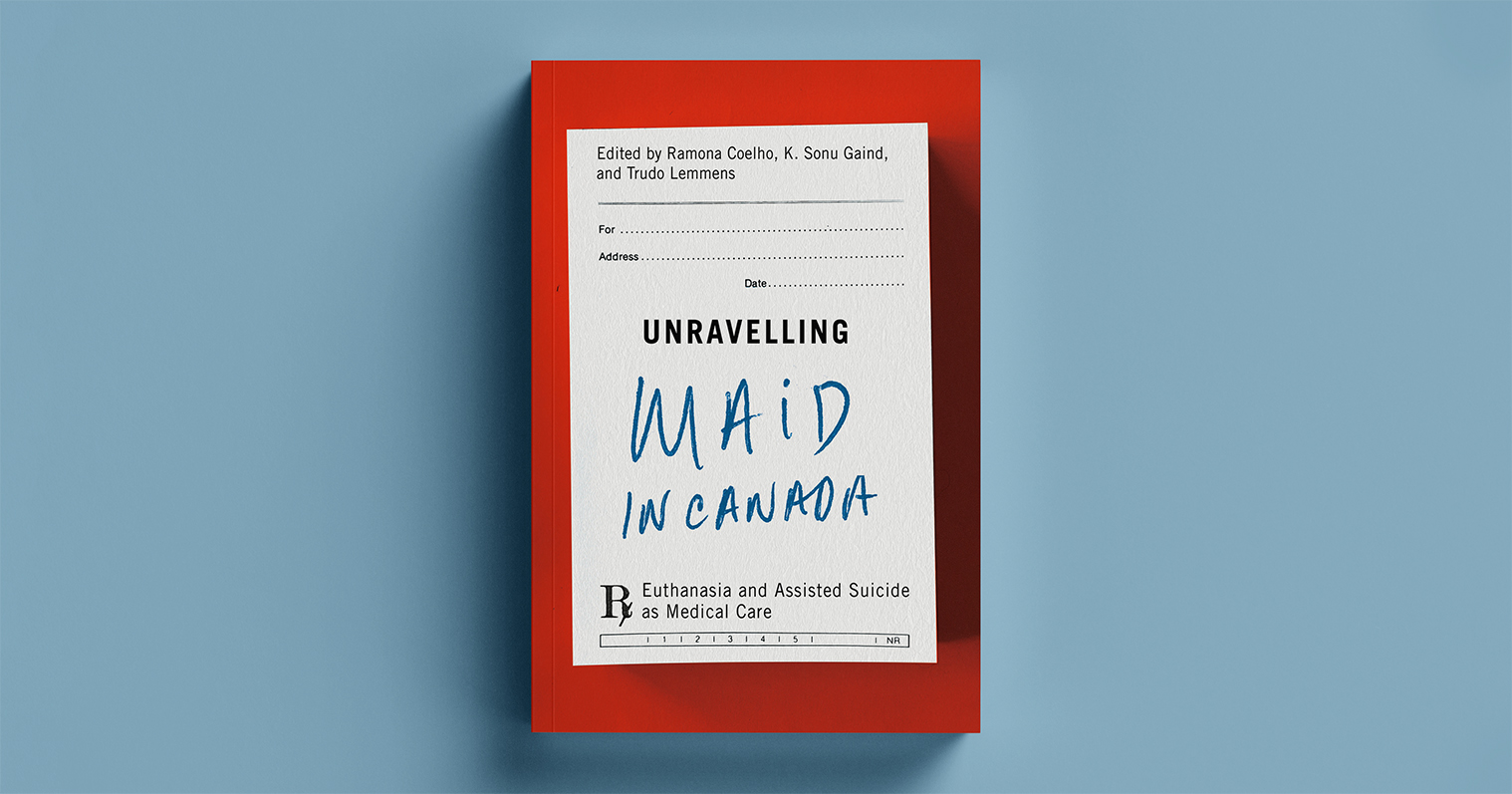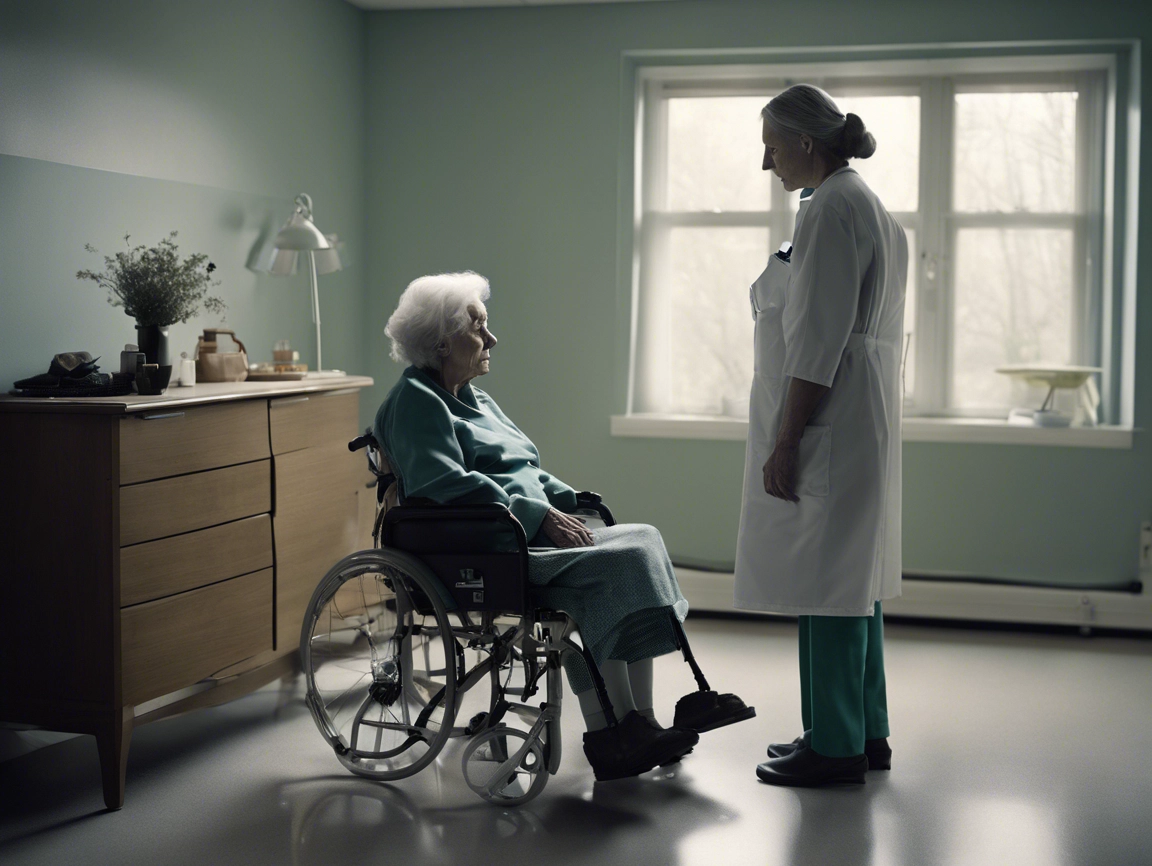Canadian doctors confront the “neutrality” and “fairness” myths
Since legalization of euthanasia in Canada (euphemistically labelled “Medical Assistance in Dying” / MAID), there has been significant domestic push-back from both doctor and patient-based sources in which our Alliance has played an active part, both here and abroad.
Obviously, for those on both sides of this issue, international opinion is a very important part of the struggle, because that opinion will ultimately decide whether history records the Canadian legalization as a progressive milestone, or repudiates it as a dangerous, but only marginal and temporary attack upon the enduring humanitarian principles laid forth upon the ideological ashes of World War II, with the creation of the World Medical Association (1947).
Euthanasia is the focus of a worldwide, multi-generational debate, where the values and ethics of the medical community collide sharply with complex political pressures promoting a “right to die”. Traditionally, doctors have consistently maintained that euthanasia is not ethical, and that physicians must never be collectively instrumentalized for the implementation of any administrative death program (of which MAID is one).
To date, this position has been maintained by the vast majority of major national medical associations including the UK, Australia, New Zealand, France, and the USA, who have condemned the practice of euthanasia, and opposed its legalization. Alone in this group, the Canadian Medical Association chose not to represent the majority opposition of Canadian physicians, which, in the words of Dr. Jeff Blackmer, CMA Vice-President, International Health (WMA Journal October 2017, second paragraph), “Infrequent polling had consistently demonstrated”.
The CMA chose, rather, a strategy of proactive collaboration with political necessity, purportedly making a virtue of active involvement in policy elaboration. But with world medical opinion against euthanasia, the Canadian Medical Association may stand or fall by the historical judgement of this one issue.
Some members of the current CMA leadership have undertaken a systematic campaign aimed at advancing the euthanasia agenda on the world stage. Their strategy seems to be to promote a rosy-tinged vision of euthanasia in Canada, distorting certain critical facts, while omitting others.
Some members of the Physicians’ Alliance against Euthanasia, in collaboration with other groups and individuals, have been working to provide a balance to CMA global initiatives, creating a sort of editorial running battle for the hearts and minds of international medical opinion.
To begin with, Dr. Jeff Blackmer, of the Canadian Medical Association published a pro-euthanasia piece in the World Medical Journal (referenced above), coincident with a similar article from the Netherlands. This was followed by their submission, in multiple regional conferences, of a proposal to end, or at least modify, WMA disavowal of euthanasia.
We have related in past newsletters how concerned Canadian physicians not only published two rebuttals of the CMA and RDMA articles, also in the World Medical Journal (Fall page 17, and winter page 33, 2018), but how some travelled at their own expense to represent the majority Canadian view at the WMA General Assembly in Reykjavik, Iceland (October 2018) ; and how the CMA was frustrated by the overwhelming opposition they encountered there from other nations. It withdrew the resolution for a change to WMA policy, and resigned membership in that body, officially because of plagiarism by the new WMA president (a resignation later echoed by that of their close ally in the euthanasia cause: the Royal Dutch Medical Association).
We now observe that those CMA officers – following their at least temporary failure at the WMA –seem intent upon pursuing their campaign of persuasion in individual countries, taking advantage of local debates as opportunity might allow. Thus, both the President-Elect and the Vice-President, International Health of CMA were commissioned by the British Medical Journal to write full length opinion pieces for that Journal (January 2019, here and here), with glowing accounts of euthanasia in Canada, timed to precede a poll of members of the Royal College of Physicians on “assisted dying”, the RCP having resolved to take a “neutral” stance on the practice unless two-thirds of its membership opposes or favors it (on March 21, following the poll, to which only 19% of members responded, The RCP moved to a “neutral” stance).
A large number of Canadian doctors, and others, responded immediately to these articles with submissions of their own, correcting the CMA narrative (here and here) and demonstrating the breadth and depth of opposition to euthanasia in Canada. The BMJ editors chose to bury them all deep within the “rapid response” section of the website, despite requests for equal space.
It has become evident in Canada that, while the CMA may support doctors on both sides of the debate, a “neutral” stance regarding the procedure itself is intellectually untenable. As individuals, then, the leadership at the CMA have had to choose sides, and some have chosen to promote euthanasia. It is regrettable that the name and institutional weight of the CMA have become associated with this purpose.
The international medical community deserves to have all the information on the practice and politics of euthanasia in Canada, including the myth of CMA “neutrality” and the lack of fairness towards “conscientious objectors”.
Whatever the motives of its officers, the practical result of CMA action to date has been the endorsement of a uniquely radical Canadian model, normalizing euthanasia practice throughout medicine, progressively marginalizing dissent, and thus denying typical, non-suicidal patients the life-centered care they deserve.
We hope others will benefit from these facts to make wiser choices than Canada has done, in order to halt and reverse the intrusion of euthanasia into our medical practice and institutions, both here and abroad.
A brief refutation of the pretention that euthanasia implementation in Canada is reasonable and balanced.
- Canadian euthanasia policy does not represent a typical or mainstream approach. It embodies, rather, a radical normalization of euthanasia well beyond the margins of contemporary medical thought and practice, because:
a. Euthanasia (as opposed to assisted suicide) is only permitted in a small minority of countries (Belgium, the Netherlands, Luxembourg and Colombia). And in those countries additional protections exist, including the right of doctors to refuse to practice euthanasia if they consider it to not be in the patient’s best interest.
b. Canadian policy, unique among all nations — as originally legislated in the Province of Quebec – positively states euthanasia to be standard medical care, with guaranteed access for all qualified individuals. In fact, the Quebec model allows only euthanasia, never doctor assisted suicide, thus reinforcing the perception of these deaths, not as a subjective suicidal decision, but as an objectively appropriate medical act.
c. Disregarding a multi-millennial tradition, medical leaders in Canada invited judicial and legislative authority to define medical practice and ethics, seriously weakening the status of Canadian medicine as an independent, self-regulating profession.
2. Applying the definition of euthanasia as basic medical care, within the universal state monopoly of health service delivery in Canada, has resulted in an implementation model which in no way represents a fair or even-handed balance of the needs and interests of doctors and patients on opposing sides of this issue, because:
a. Euthanasia must be provided in all health care institutions (with minimal exceptions, already under determined attack and never to be extended or repeated).
b. Patients who could “qualify” for euthanasia cannot, therefore, escape the knowledge that others, sharing a similar diagnosis and prognosis, will be euthanized by the same staff upon whom they depend for their own survival.
c. Health professionals in all typical institutions are expected to be euthanasia compliant. In the present generation, narrow exemptions are provided for “conscientious refusal”, but no objections are permitted on professional grounds, because that debate — unresolved among medical professionals throughout the world — has been legally “settled” in Canada.
d. It is likely that future hiring and professional certification will be increasingly dependent upon euthanasia compliance.
e. The basic scientific right of free research disappears because the development of alternative treatment models that exclude euthanasia and assisted suicide cannot be applied at the institutional level.
f. Because many euthanasia proponents believe doctors have an ethical duty to explain all available treatment options to their patients, new guidelines in some provinces demand that physicians also inform all potentially qualified patients of their access to the euthanasia option. This interpretation is hotly contested. If it prevails the result will be that:
i. Vulnerable non-suicidal patients will be universally subject to suicidal suggestion;
ii. Euthanasia-friendly doctors will more easily steer patients towards that outcome;
iii. For a doctor to frame his or her opposition to euthanasia as based on professional judgment rather than deeply held “beliefs and feelings” will be increasingly frowned upon, since proponents recognize no medical grounds for rejecting it now that it is legal.
Make euthanasia unimaginable.
Sincerely,
Catherine Ferrier
President


